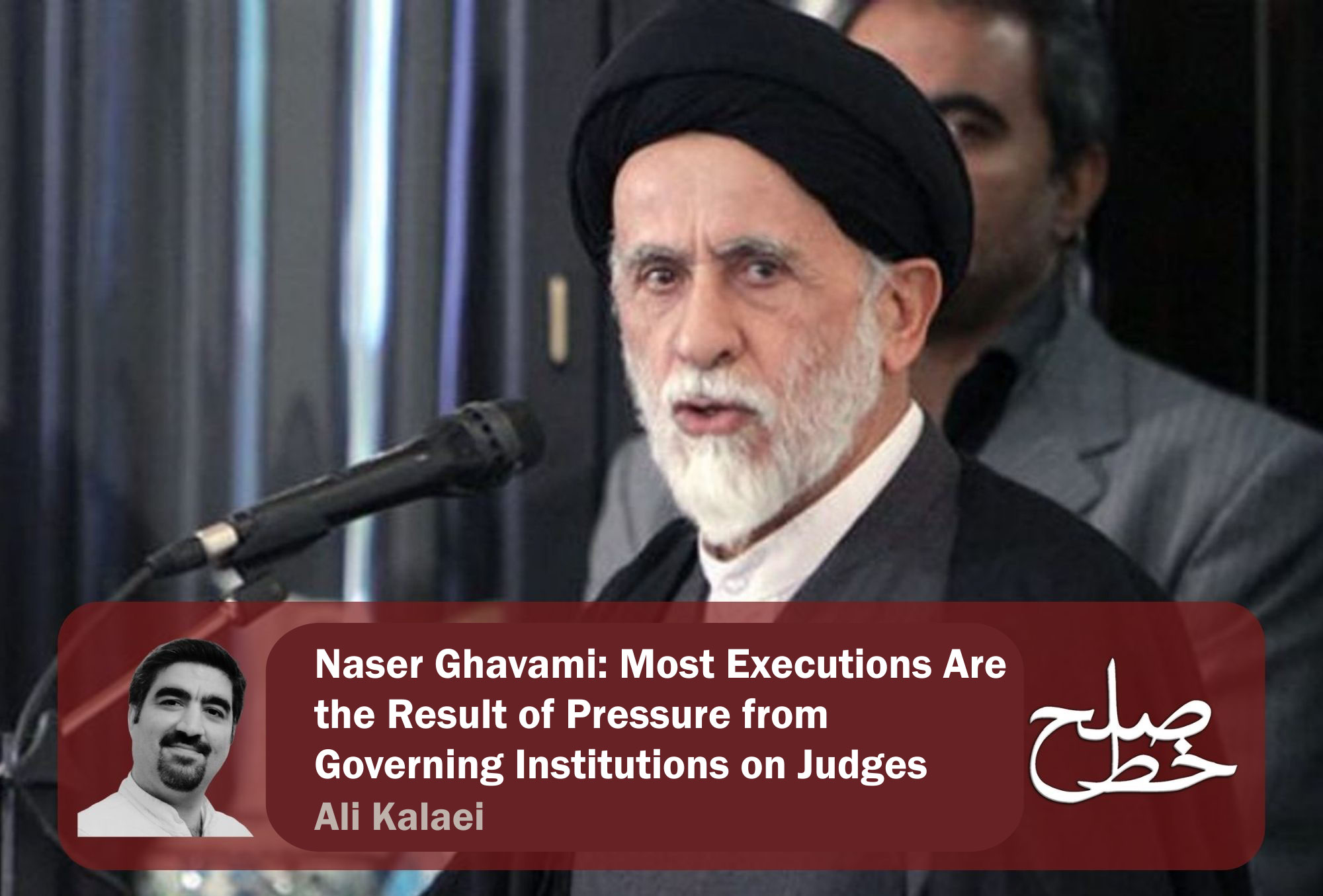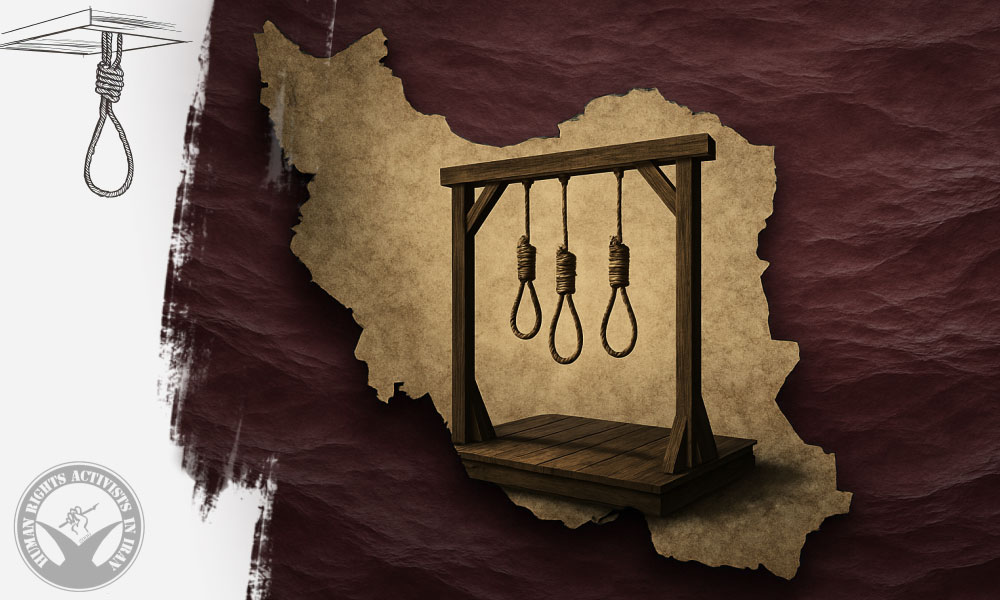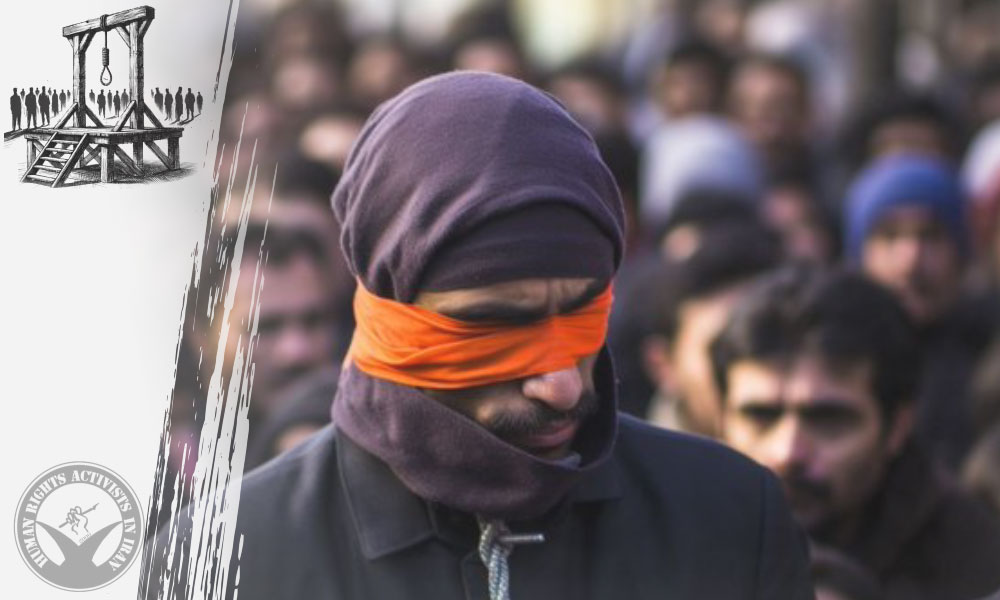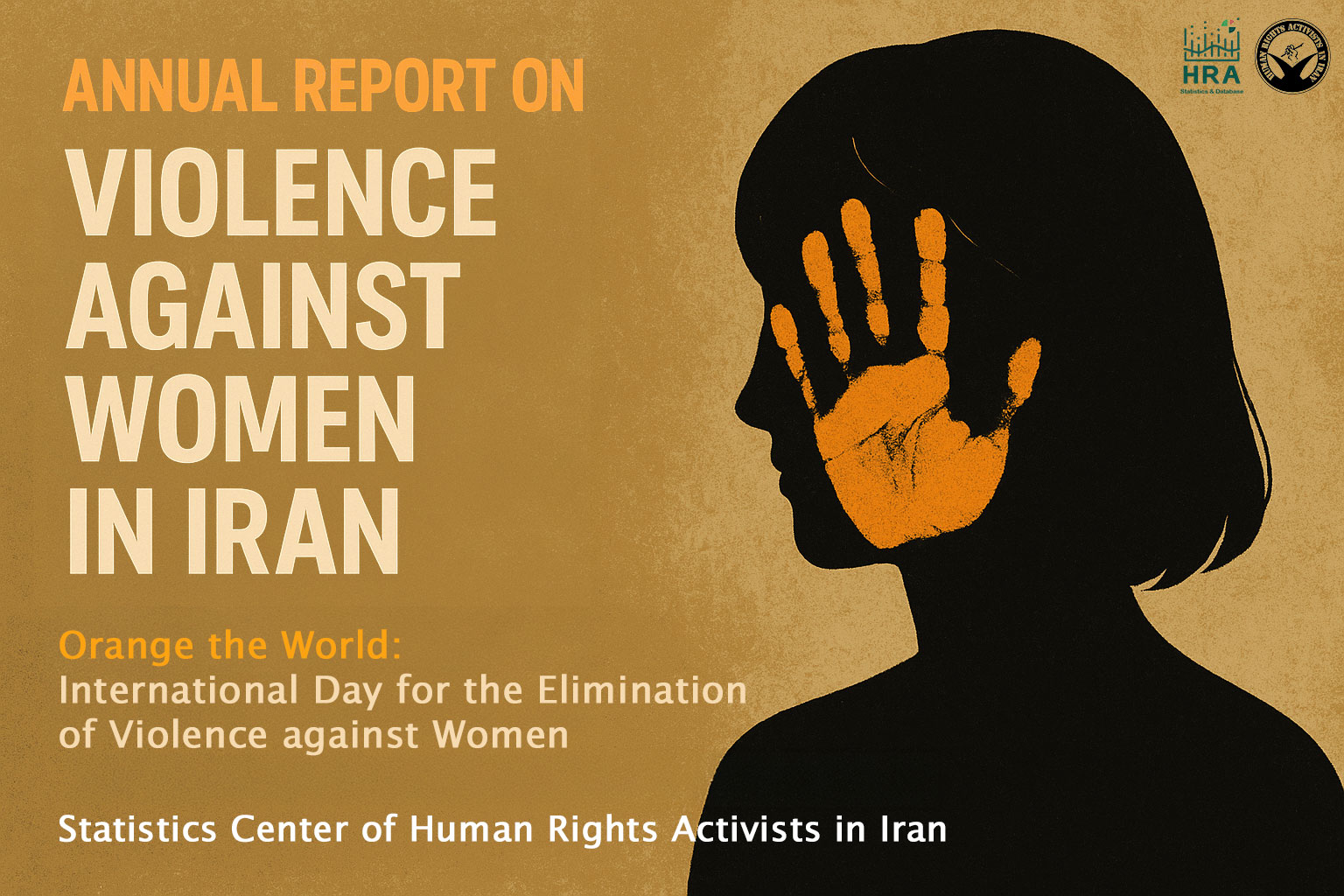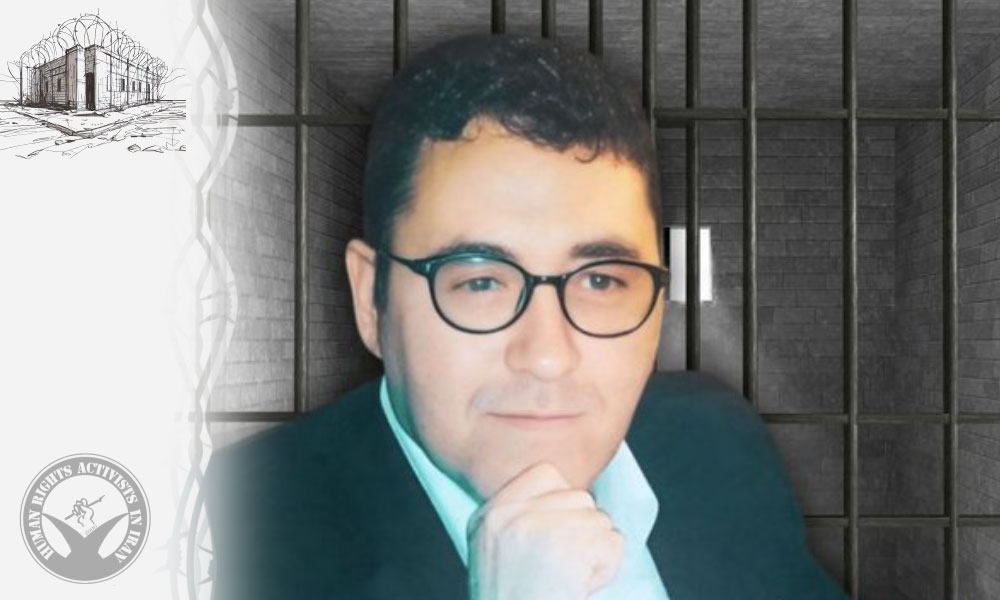HRANA- With the increasing implementation of public executions in Iran, debates around this form of punishment have intensified. Supporters consider it a necessary tool for deterrence and public example, while critics emphasize its contradiction with the principle of human dignity, human rights standards, and its harmful psychological and social consequences. In this context, Peace Mark Monthly Magazine conducted an interview with Seyed Naser Ghavami to examine the jurisprudential, legal, and social dimensions of the issue. Ghavami is a well-known figure in the judiciary and legislative systems of the Islamic Republic of Iran, with a tumultuous track record and rare candor in expressing his views.
Naser Ghavami, who represented the people of Qazvin during the fifth and sixth terms of the Islamic Consultative Assembly and chaired the Legal and Judicial Commission in the sixth term, also previously held important judicial positions such as serving as a judge in the Supreme Court and heading the fourth branch of the Article 49 Constitutional Court. His critical positions, especially in recent years, have consistently attracted attention. His simultaneous experience in the fields of jurisprudence, judiciary, and legislation makes him a unique choice for analyzing public executions.
Below is the full interview of Peace Mark Monthly Magazine with this former judge and former head of the Parliamentary Judicial Commission:
What is the legal status of public executions in Iran? Does it conform with the principle of human dignity as stated in the Constitution?
At any time, we must consider the circumstances of that era. Currently, public executions cause global outrage. Islam should not be subjected to hatred, and its dignity and reputation must be preserved. The majority of people around the world today do not accept public executions. Many countries have abolished the death penalty, and even those that have retained it do not carry it out in such a manner. When the majority of the global community rejects and detests a practice, its implementation becomes a disgrace to Islam. In my opinion, public executions are not right or proper.
Only in one case, namely zina mohssaneh (adultery by a married person), is it mentioned that punishment should be carried out in public by stoning. However, proving the act of zina, whether mohssaneh or not, is practically impossible because it requires four just witnesses to have seen the act with their own eyes. This is an unrealistic condition and virtually never happens. Even if the individual confesses, the judge may convert the punishment to a ta’zir (discretionary punishment).
During my time as a judge, I had a case where a woman repeatedly confessed in court that she was married and had been with another man. We consulted Ayatollah [Hossein Ali] Montazeri and Ayatollah [Seyed Mohammad Reza] Golpayegani, asking about a woman who had three children and had confessed. From a jurisprudential standpoint, if the matter is proven through confession, the judge can reduce the punishment. For example, the sentence could be changed to three months in prison or thirty lashes. I wrote to both Ayatollahs saying that I did not consider myself on the level of a Shari’a judge and sought their permission. Both responded in writing that I was authorized on their behalf to pardon her. I did so, and her husband took her to another city.
So, the possibility of carrying out such a sentence publicly is essentially nullified. It is a moot point. These executions for political or security-related offenses and other matters, when carried out in public, are in my view a disgrace to Islam and are religiously forbidden.
Beyond the religious realm, how does this type of punishment relate to the Constitution of the Islamic Republic?
The current Constitution is not one for a republic or an Islamic republic. It is a constitution for a personal rule. Only one principle truly matters, and that is Article 110, which outlines the powers of the Supreme Leader. Another article states that the three branches of government operate under the absolute authority of the Supreme Leader. Supervision by the Guardian Council has also been interpreted by this body as supervisory approval. So, the three branches have no real space or independence. If the heads of the three branches are not appointed by the Leader — that is, by Mr. Khamenei — they cannot even hold their respective positions.
After Ayatollah Khomeini’s era, this Constitution was fundamentally altered. For instance, in the judiciary, there used to be a High Judicial Council. Three members of this council were elected by the country’s judges, and the Chief Justice of the Supreme Court and the Prosecutor-General were also selected by Supreme Court judges.
Therefore, the existing Constitution has nothing to do with democracy. It is a law for an Islamic government and a personal rule. Under this law, a single person has the authority to do whatever they please, and the people have seen this in practice. The Constitution must be changed. If it is not, this same state of affairs will continue — increasing inflation that breaks people’s backs, greater international isolation, and growing hostility toward the country.
In your opinion, what are the social and familial harms caused by public executions, particularly for spectators?
Those who come to watch public executions fall into several categories: some are just there to watch and may not even believe in religious matters; others are government extremists. These executions have very harmful effects on non-governmental individuals who do not believe the executions are just. Broadcasting them on television is also a disgrace to Islam.
Children and adolescents are sometimes among the spectators of public executions. What psychological impact does this have on them, in your view?
In my opinion, bringing children to such scenes is a betrayal of those children. Even if their parents take them, they are betraying them. This violence stays in the child’s mind — that killing someone is easy and done with a noose. I believe that men and women who take children to these scenes betray them and instill a violent mindset in them.
Why do you think people attend public executions at all?
You’d have to ask the people themselves. We are plagued by ignorance. A young man once said, “If the Leader orders me to kill my son, brother, or wife, I will.” This is ignorance. It is not knowledge or faith. Those who attend such scenes are also ignorant and do not realize what they are doing.
So you believe it holds no appeal for them?
None at all. As I said, only those affiliated with the government, who consider the execution a duty and service to the country, might take pleasure in it. But attending just to watch is wrong.
In your opinion, does carrying out executions in public reduce crime?
Never. These actions will not reduce crime. In fact, they may lead to the glorification or mythologizing of the executed individual. For example, when they were about to execute Sheikh Fazlollah Noori, he threw off his turban and cloak, saying he didn’t want them. Such acts have an impact on witnesses and those present.
So fundamentally, why do you think public executions are carried out?
As I said, in our jurisprudence, public execution is only prescribed in cases of zina. For other executions, public implementation is not mentioned in Islam. Even in cases of zina, it is stated that a group of believers (“ta’ifatun min al-mu’minin”) should be present. And again, proving zina is nearly impossible based on evidentiary requirements. If the person confesses — as allowed in our jurisprudence — the religious judge can pardon them. So the question is: why not pardon them? Why insist on execution?
You have a judicial background. Why do you think the judiciary currently insists on public executions?
The issue is that state violence against the people increases day by day. Admittedly, some of this violence was provoked at the beginning of the Revolution by groups engaged in armed conflict, and it continues today.
Since you mentioned violence at the beginning of the Revolution, let me ask: during the 2022 protests, it was said that some protesters had clashed with government forces and injured them, prompting the state to respond with violence. In your view, does the state have the right to respond violently to any act by its opponents?
Look, if an organization is armed and uses weapons against the state, then the government must respond accordingly. Today, Hezbollah in Lebanon is an armed group engaging in sabotage, holding the country hostage. If armed groups were allowed to remain in our country, what would our situation be?
Even now, if people organize and take up arms against the government, the state would be compelled to use force. But if people come to the streets and chant “Woman, Life, Freedom,” and you shoot them with pellet guns and blind them, that is unjustifiable. These people have no weapons — not even sticks. The state should not resort to violence in such cases. Such gatherings should be addressed with planning, dialogue, and appropriate behavior — not violence. When people are unarmed, the state has no right to use arms against them.
You served in the Supreme Court. In criminal justice policymaking, which body has the most influence over whether executions are carried out publicly or privately? Who is responsible for public executions?
Within the judiciary, we have good, honorable, and religious judges. But the interference of certain institutions has auctioned off the judiciary’s integrity. These are the governing institutions that hold the real power. Most of these executions result from pressure by these institutions on the judges. Within the judiciary, thousands of just rulings are issued daily, and many honorable judges are doing their jobs. But some judges who are captive to governmental bodies need to reconsider their actions and stop allowing themselves to be used by individuals who dictate what “must” happen.
During one period of unrest, a young man was arrested in Qazvin. We informed Ali Sheikh-Mohammadi Takandi (representative of Qazvin province in the third Assembly of Experts), who called the case’s judge. The judge said the young man had done nothing and released him. But when the student returned to his university, an arrest warrant arrived, and he was taken again — the same judge who had released him had now issued the warrant. Clearly, someone had gone to him and asked, “Why did you release him? He should have been detained.” Judges must be careful not to sell their souls.
You referred to “governing institutions.” Which institutions exactly are you referring to?
You shouldn’t expect me to be more explicit. You and the people already know. These are the institutions that today control everything — media, weapons, prisons, and part of the judiciary. You know who they are. I am 82 years old. I was imprisoned under the Shah, and that’s enough for me. I don’t want to be imprisoned again in my 80s.
There’s significant international sensitivity around public executions. Is carrying them out in public in the national interest?
It’s not in the country’s interest. But the international community plays both sides and doesn’t assess situations fairly. If a country is friendly with them, they remain silent no matter what happens. Today, Muslims in Russia and China are in the worst conditions, but no one talks about the oppression they face. Our government, being allied with those countries, also says nothing.
Before the Revolution, one cleric visited China and reported that in that country, if someone was found with a book of religious rulings (resaleh amalieh) from a Shia authority, they would be executed. They claimed no one should undermine their anti-religion ideology.
You are a jurist, a former Supreme Court judge, and chaired the Judiciary Commission in Parliament. If there were a mechanism to revise the country’s penal system, do you believe the death penalty could be completely abolished from Iranian law?
We can’t categorically say that the death penalty should be eliminated entirely. In cases of qisas (retributive justice), for instance, if someone has killed another person — the global community might say that executing them means another killing — but we say the government doesn’t kill them. It’s the right of the wali al-dam (the victim’s heir). That person may demand execution or offer forgiveness. In qisas cases, the government and judge play no role except to determine whether the accused is indeed the killer.
But in our penal code, many provisions should be eliminated. For example, one article once stated that if the judge suspects someone of murder, he could ask the victim’s heirs to bring fifty people to swear the suspect is the killer. And if there were not fifty people, one person could swear on behalf of fifty. This had no jurisprudential basis. We tried to amend this article in the sixth Parliament, but the Guardian Council rejected it. The matter went to the Expediency Council.
I attended three sessions as chair of the Judiciary Commission to defend the amendment. During the third session, I argued so strongly that Mr. Rafsanjani — then head of the Expediency Council — said, “Continue your argument, I’ll go ask the Leader.” He left and returned thirty minutes later, saying the Leader agreed: one person could not swear on behalf of fifty. The article was then removed.
The question remains: during those fifteen years when the article was in place, how many people were executed based on one person’s oath? I believe our criminal laws must be comprehensively revised to reduce the overcrowding in courtrooms.
Thank you for taking the time to speak with Peace Mark Monthly Magazine.
Originally published in Khat-e Solh (Peace Mark) monthly magazine on September 23, 2025.



